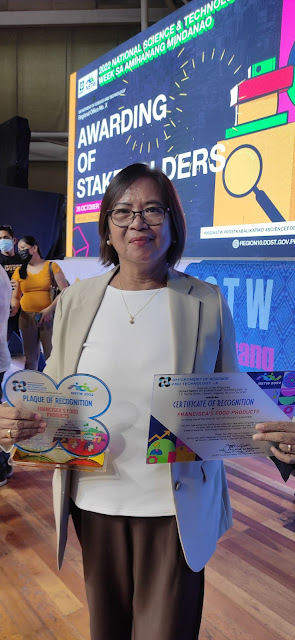Feature: The siomai that wrapped them together
Dahlia Dumalagan wrapped a mix of ingredients in a wonton wrapper, a rough start in making siomai in 2018.
The dimsum snack was not yet popular at that time in the humble town of Mohon, Aloran, Misamis Occidental but Dahlia thought of starting a siomai business in order to keep her family together.
Life had not been easy for her. She was a housewife who had to take care of her children and do the house chores alone since her husband had been working as a seafarer.
She knew next to nothing about running a business. With only a small capital and with only four people working with her, they produced only five to ten packs of siomai in a week. The sales barely covered the production costs.
In 2019, she joined the Kapatid Mentor Micro-Entrepreneurs (KMME) program of the Go Negosyo and the Department of Trade and Industry (DTI). She gained practical knowledge and skills to improve her business in the mentorship program.
She implemented her Business Improvement Plan which allowed her to augment her business’ production and sales.
By 2020, her business grew to house more than 20 employees and produced siomai varieties made from pork, chicken, and shrimp flavor selections. She has also introduced new products such lumpia, ham, chorizo, burger patty, embutido, and Chinese dumpling.
But just as the business was starting to flourish, COVID-19 pandemic hit. Lockdowns were imposed and cross-border travels were prohibited. The African Swine Fever (ASF) added to Dahlia’s hurdle in trying to sell her products. It was no longer about sales alone, but also getting the raw materials.
To add to her predicament, Dahlia’s husband was reconsidering going back to seafaring which entailed more months of being apart.
Because she refused to be defeated, Dahlia sold her products in her town. She sold her siomai directly to the local street food vendors and local households on a made-to-order basis. She bought meat and essential ingredients from the local market, even at higher prices, just to keep the business running.
This was the beginning of the townspeople’s recognition of Francisca's Food Products.
She was granted a financial assistance through the COVID-19 Assistance to Restart Enterprises (CARES) program of the Small Business Corporation (SBCorp), the financing arm of DTI.
She also received assistance from the Department of Science and Technology's Small Enterprise Technology Upgrading Program (DOST-SETUP) which provided her an opportunity to improve technologically and consequently improve her production.
Today, Francisca's Food Products is the most popular brand of siomai not just in their locality but also in the whole province.
They now deliver their products in Zamboanga del Norte, Zamboanga del Sur, and Lanao del Norte. They produce about 30,000 packs of siomai every month.
Currently employing more than 40 Aloranons and making it a mission to provide jobs particularly to young mothers and part-time students, Francisca's Food Products proudly provides inclusive livelihood to the community.
With the production facility situated at their residence, Dahlia’s husband co-manages the business and no longer has to work overseas. Meanwhile, their son takes charge of the production area.
Francisca's Food Products is now planning to branch out in Zamboanga Peninsula and is looking to distribute its FDA-approved products nationwide.
Despite difficult times, Dahlia has kept her business growing and her family together.
For her, praying to God and hoping for something good got her through the hard times.
“You can endure everything if you work hard with faith.” (DTI)







Comments
Post a Comment